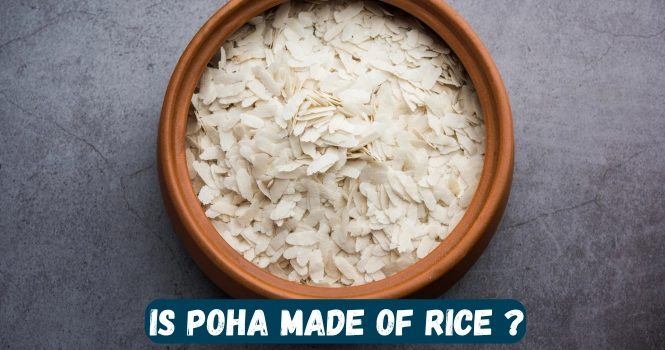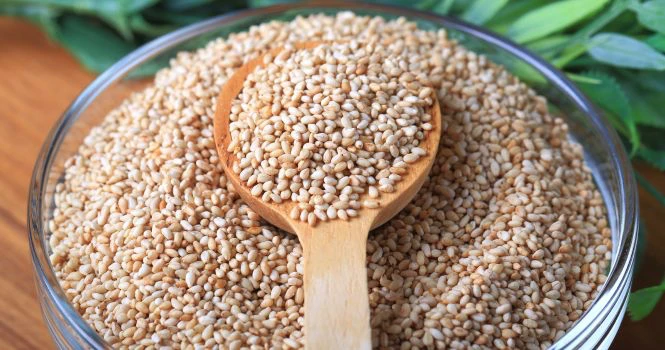The Benefits of Coconut Water
Coconut water is undoubtedly Nature’s Best Electrolyte Drink! We will deep dive into the Benefits and precautions to be taken in this article…
Coconut water is found in green coconuts, when they mature, the coconut water is replaced by coconut meat or pulp.
Coconut milk is derived by grating coconut meat.
Nutritional Information
The following is in one cup (240 ml) of Unsweetened Coconut Water.
| Nutrient | Amount |
| Calories | 45-60 kcal |
| Carbohydrates | 9-15 g |
| Sugars | 6-8 g |
| Dietary fiber | 2-3 g |
| Protein | 1-2 g |
| Fat | 0-0.5 g |
| Sodium | 40-60 mg |
| Potassium | 400-600 mg |
| Calcium | 40-60 mg |
| Magnesium | 40-60 mg |
| Phosphorus | 20-40 mg |
| Vitamin C | 4-10 mg |
| Vitamin B-complex | <10% DV each |
Nutritional Information of 1 Cup (80grams) of Fresh Shredded Coconut Pulp
| Nutrient | Amount |
| Calories | 283 kcal |
| Protein | 2.7 g |
| Total Fat | 26.8 g |
| – Saturated Fat | 23.8 g |
| – Monounsaturated Fat | 1.1 g |
| – Polyunsaturated Fat | 0.3 g |
| Carbohydrates | 12.2 g |
| – Dietary Fiber | 7.2 g |
| – Sugars | 5 g |
| Vitamin C | 1.7 mg |
| Thiamin | 0.05 mg |
| Riboflavin | 0.02 mg |
| Niacin | 0.5 mg |
| Vitamin B6 | 0.1 mg |
| Folate | 20 µg |
| Vitamin A | 0 IU |
| Vitamin E | 0.2 mg |
| Vitamin K | 0.2 µg |
| Calcium | 11 mg |
| Iron | 1.6 mg |
| Magnesium | 29 mg |
| Phosphorus | 105 mg |
| Potassium | 285 mg |
| Sodium | 16 mg |
| Zinc | 1.1 mg |
Health Benefits
Coconut water is a popular and refreshing natural beverage that comes from the liquid inside young green coconuts. It is often consumed as a hydrating drink, but it also offers various health benefits due to its unique composition of nutrients, vitamins, and minerals. Some of the key health benefits of coconut water include:
1. Hydration: Coconut water is rich in electrolytes, such as potassium, sodium, magnesium, and calcium, which help to maintain proper fluid balance in the body. This makes it an effective drink for rehydration after exercise, illness, or hot weather.
2. Rich in nutrients: Coconut water is a good source of various essential nutrients, including vitamins C and B-complex, and minerals like potassium, magnesium, calcium, and phosphorus. These nutrients support various bodily functions and overall health.
3. Antioxidant properties: Coconut water contains antioxidants that help to neutralize free radicals, which can cause cellular damage and contribute to aging and chronic diseases.
4. Heart health: Some studies have suggested that coconut water may help to reduce blood pressure and improve overall heart health. This is partly due to its potassium content, which helps to regulate blood pressure.
5. Kidney function: The potassium in coconut water can help to maintain proper kidney function by promoting the excretion of excess sodium and reducing the risk of kidney stones.
6. Digestive health: Coconut water contains bioactive enzymes like catalase, peroxidase, and dehydrogenase, which aid in digestion and metabolism. Additionally, its high fiber content can help to prevent constipation and promote regular bowel movements.
7. Blood sugar control: Some studies have suggested that coconut water may help to regulate blood sugar levels, making it a potentially beneficial beverage for people with diabetes or those at risk for developing the condition.
8. Athletic performance: Coconut water’s electrolyte content can help to prevent muscle cramps and maintain optimal hydration during physical activity, making it a popular choice for athletes and fitness enthusiasts.
It is important to note that while coconut water offers several health benefits, it should not replace water as your primary source of hydration. Furthermore, it is best to consume coconut water in moderation, as it does contain calories and sugar.
Side Effects
Coconut water is generally considered safe for most people when consumed in moderation. However, some individuals may experience side effects or adverse reactions. Some potential side effects of coconut water include:
1. Allergic reactions: Although rare, some individuals may have an allergy to coconuts or coconut products, which could lead to symptoms such as itching, hives, swelling, or difficulty breathing after consuming coconut water. If you suspect an allergic reaction, discontinue use and consult a healthcare professional.
2. High potassium levels: Coconut water is a rich source of potassium, which is generally beneficial for maintaining electrolyte balance and supporting heart health. However, excessive consumption of coconut water may lead to hyperkalemia (high potassium levels in the blood), particularly in individuals with kidney disorders or those taking potassium-sparing medications. Hyperkalemia can cause irregular heartbeat, muscle weakness, or even paralysis in severe cases.
3. Blood sugar fluctuations: Although coconut water has a relatively low glycemic index, it still contains natural sugars that can impact blood sugar levels. Individuals with diabetes or those monitoring their blood sugar levels should consume coconut water in moderation and monitor their blood sugar response.
4. Caloric intake: While coconut water is a healthier alternative to many sugary beverages, it still contains calories. Consuming excessive amounts of coconut water can contribute to weight gain, especially if it leads to a higher overall caloric intake.
5. Drug interactions: Coconut water may interact with certain medications, such as blood pressure medications, diuretics, or potassium supplements, due to its potassium content. If you are taking any medications or have a health condition, consult your healthcare professional before consuming coconut water.
To minimize the risk of side effects, it is best to consume coconut water in moderation and opt for unsweetened varieties without added sugars or artificial ingredients. If you have any concerns or questions about including coconut water in your diet, consult a healthcare professional for personalized advice.
Recipes Using Coconut Water
Here are 10 delicious and healthy recipes using coconut water:
1. Coconut Water Smoothie
- 1 cup coconut water
- 1 cup frozen mixed berries
- 1 banana
- 1 cup baby spinach
- 1 tbsp chia seeds
Blend all ingredients until smooth and enjoy!
2. Tropical Coconut Quinoa
- 1 cup quinoa
- 2 cups coconut water
- 1 cup diced pineapple
- 1 cup diced mango
- 1/4 cup chopped cilantro
- 1/4 cup lime juice
- Salt and pepper to taste
Cook quinoa in coconut water according to package instructions. Once cooked, fluff with a fork and let it cool. Mix in pineapple, mango, cilantro, and lime juice. Season with salt and pepper.
3. Coconut Water Chia Pudding
- 1/4 cup chia seeds
- 1 cup coconut water
- 1/2 cup coconut milk
- 1 tbsp honey or maple syrup
- 1/2 tsp vanilla extract
- Toppings: fresh fruit, nuts, or shredded coconut
Combine all ingredients in a jar, stir well, and refrigerate for at least 4 hours or overnight. Top with your favorite toppings before serving.
4. Coconut Water Poached Chicken
- 2 cups coconut water
- 2 cups water
- 1 lb boneless, skinless chicken breasts
- 1/2 tsp salt
- 1/2 tsp pepper
- 1/4 cup chopped cilantro
Bring coconut water and water to a gentle simmer in a pot. Season chicken with salt and pepper, add to the pot, and poach for 15-20 minutes, or until cooked through. Remove from the liquid, let it cool, and shred the chicken. Top with cilantro before serving.
5. Coconut Cucumber Salad
- 1 large cucumber, thinly sliced
- 1/4 cup coconut water
- 2 tbsp lime juice
- 1 tbsp honey or maple syrup
- 1/4 cup chopped cilantro
- Salt and pepper to taste
Combine cucumber slices with coconut water, lime juice, honey, and cilantro in a bowl. Season with salt and pepper, and refrigerate for at least 30 minutes before serving.
6. Coconut Water Pancakes
- 1 cup whole wheat flour
- 1 tsp baking powder
- 1/4 tsp salt
- 1 cup coconut water
- 1 egg, beaten
- 1 tbsp melted coconut oil
- 1 tsp vanilla extract
Combine dry ingredients in a bowl. In a separate bowl, mix coconut water, egg, coconut oil, and vanilla extract. Combine wet and dry ingredients and mix until smooth. Cook pancakes on a greased griddle or pan until golden brown.
7. Coconut Water Rice
- 1 cup jasmine rice
- 1 1/2 cups coconut water
- 1/2 cup water
- 1/4 tsp salt
Rinse rice under cold water. Combine rice, coconut water, water, and salt in a saucepan. Bring to a boil, then reduce heat to low, cover, and cook for 15-20 minutes, or until rice is tender and water is absorbed.
8. Coconut Water and Berry Popsicles
- 2 cups coconut water
- 1 cup mixed berries (fresh or frozen)
- 2 tbsp honey or maple syrup
Blend all ingredients until smooth. Pour the mixture into popsicle molds and freeze for at least 4 hours or until solid.
9. Coconut Water Iced Tea
- 4 cups coconut water
- 4 tea bags (green or black tea)
- 1/4 cup honey or maple syrup
- 1/4 cup fresh lemon juice
- Fresh mint leaves (optional)
Bring coconut water to a boil, then remove from heat. Add tea bags and steep for 5-7 minutes. Remove tea bags, add honey or maple syrup, and stir until dissolved. Allow the tea to cool, then stir in lemon juice. Refrigerate until cold, and serve over ice garnished with fresh mint leaves.
10. Coconut Water Gazpacho
- 4 cups chopped ripe tomatoes
- 1 cucumber, peeled and chopped
- 1 bell pepper, chopped
- 1/4 cup red onion, chopped
- 2 cups coconut water
- 1/4 cup olive oil
- 3 tbsp red wine vinegar
- Salt and pepper to taste
- Fresh basil or parsley for garnish
Blend tomatoes, cucumber, bell pepper, red onion, coconut water, olive oil, and red wine vinegar until smooth. Season with salt and pepper to taste. Refrigerate for at least 2 hours to allow flavors to meld. Serve cold, garnished with fresh basil or parsley.
These recipes highlight the versatility of coconut water as an ingredient in various dishes, from refreshing beverages and desserts to savory meals. Enjoy these healthy and delicious recipes featuring coconut water as a key component.
Frequently Asked Questions
Benefits of drinking Coconut water on Empty Stomach
Drinking coconut water on an empty stomach can provide quick hydration, boost metabolism, and aid digestion. It can help cleanse the digestive system, detoxify the body, and provide essential nutrients like potassium, magnesium, and calcium.
What happens if I drink coconut water everyday?
If you drink coconut water every day, you may experience several health benefits such as improved hydration, better electrolyte balance, enhanced digestion, and support for heart and kidney health. However, excessive consumption can lead to high potassium levels or increased caloric intake.
What are the benefits of drinking coconut water?
Drinking coconut water offers benefits such as:
– Improved hydration
– Electrolyte balance
– Enhanced digestion
– Support for heart and kidney health
– Rich in vitamins and minerals
– Antioxidant properties
– Reduced blood pressure
What is the best time to drink coconut water?
The best time to drink coconut water can vary based on individual preferences and goals. Some people find it beneficial to drink coconut water first thing in the morning on an empty stomach, while others may prefer it as a post-workout drink to replenish electrolytes and hydration.
How much coconut water should I drink a day?
The ideal amount of coconut water to drink per day depends on individual needs and health goals. Generally, it is safe to consume around 8-16 ounces (240-480 ml) of coconut water per day, but it is essential to consider other factors like activity level, body size, and specific health conditions.
Does coconut water improve skin?
Yes, coconut water may help improve skin health due to its hydrating properties, antioxidants, and nutrients like potassium, magnesium, and vitamins C and B-complex. These nutrients can help nourish the skin, reduce inflammation, and promote collagen production for a healthy complexion.
Does coconut water burn belly fat?
Coconut water is not a magic solution for burning belly fat, but it can be part of a healthy diet and exercise plan to support weight management. It is a low-calorie, hydrating alternative to sugary beverages and can help increase satiety, making it easier to control calorie intake.
Who should not drink coconut water?
Individuals with a coconut allergy, kidney disorders, or those taking potassium-sparing medications should consult their healthcare provider before consuming coconut water. Pregnant and breastfeeding women should also consult their healthcare provider before making any significant changes to their diet. Also if you are drinking canned coconut milk then make sure you see the expiry date.
Is coconut water good for your hair?
Yes, coconut water can be beneficial for hair health. It is rich in nutrients and hydrating properties that can help nourish the scalp, strengthen hair follicles, and promote hair growth.
Who should drink coconut water?
Coconut water can be enjoyed by most people as part of a balanced and healthy diet. It is particularly beneficial for individuals seeking to improve hydration, electrolyte balance, or those looking for a natural, nutrient-rich beverage.
Which Nariyal Pani is best?
The best Nariyal Pani (coconut water) comes from fresh, young green coconuts. It is important to choose unsweetened coconut water without added sugars, artificial ingredients, or preservatives to ensure maximum health benefits.
Is coconut water hot or cold?
Coconut water is considered to have a neutral or cooling effect on the body, making it an ideal beverage for hydration and promoting a cooling sensation, especially during hot weather or after exercise.
Is coconut good for gastric problems?
Coconut water can be beneficial for individuals with gastric problems as it can help soothe the digestive system, reduce acidity, and promote better digestion due to its natural enzymes, fiber, and electrolytes.
Is 100% coconut water good for you?
Yes, 100% coconut water is good for you as it provides essential nutrients, hydration, and electrolyte balance. It is a natural, nutrient-rich beverage that can support overall health when consumed in moderation. Make sure to choose unsweetened, pure coconut water without added sugars or artificial ingredients for maximum benefits.
What are the health benefits of coconut?
Coconut, in its various forms (water, milk, oil, and meat), offers numerous health benefits, such as:
– Improved hydration (coconut water)
– Electrolyte balance (coconut water)
– Source of healthy fats (coconut oil and milk)
– Rich in nutrients like potassium, magnesium, and vitamins (coconut water and meat)
– Antioxidant properties (coconut water and oil)
– Supports heart health (coconut oil)
– Enhances digestion (coconut meat and water)
– Promotes healthy skin and hair (coconut oil and water)
Can I drink 1 Litre coconut water daily?
Drinking 1 litre of coconut water daily may be excessive for some individuals, especially if there are concerns about high potassium levels or increased caloric intake. It is generally recommended to consume around 8-16 ounces (240-480 ml) of coconut water per day, depending on factors like activity level, body size, and specific health conditions.
What are the benefits of drinking coconut water?
Drinking coconut water offers benefits such as:
– Improved hydration
– Electrolyte balance
– Enhanced digestion
– Support for heart and kidney health
– Rich in vitamins and minerals
– Antioxidant properties
– Reduced blood pressure
How much coconut water should you drink in a day?
The ideal amount of coconut water to drink per day depends on individual needs and health goals. Generally, it is safe to consume around 8-16 ounces (240-480 ml) of coconut water per day, but it is essential to consider other factors like activity level, body size, and specific health conditions.
Is coconut water healthier than water?
Coconut water is not necessarily healthier than water, but it offers additional benefits such as electrolyte balance, vitamins, and minerals that plain water does not provide. While it is essential to maintain adequate hydration through regular water consumption, coconut water can be a nutrient-rich alternative for occasional hydration and electrolyte replenishment.
Why is coconut water bad for you?
Coconut water is not inherently bad for you, but excessive consumption can lead to some issues, such as high potassium levels or increased caloric intake. It is important to consume coconut water in moderation and consider individual factors such as health conditions, allergies, or medication interactions.
What is the best time to drink coconut water?
The best time to drink coconut water can vary based on individual preferences and goals. Some people find it beneficial to drink coconut water first thing in the morning on an empty stomach, while others may prefer it as a post-workout drink to replenish electrolytes and hydration.
What happens if you drink coconut water on an empty stomach?
Drinking coconut water on an empty stomach can provide quick hydration, boost metabolism, and aid digestion. It can help cleanse the digestive system, detoxify the body, and provide essential nutrients like potassium, magnesium, and calcium.
Is coconut water good for your skin?
Yes, coconut water may help improve skin health due to its hydrating properties, antioxidants, and nutrients like potassium, magnesium, and vitamins C and B-complex. These nutrients can help nourish the skin, reduce inflammation, and promote collagen production for a healthy complexion.
Can diabetics drink coconut water?
Individuals with diabetes can consume coconut water in moderation, as it has a low glycemic index and contains natural sugars. However, it is essential to monitor blood sugar response and choose unsweetened coconut water without added sugars.
Is coconut water good for hydration?
Yes, coconut water is excellent for hydration, as it is a natural, electrolyte-rich beverage that can help replenish fluids and essential minerals lost during exercise or daily activities.
Is coconut water good for kidneys?
Coconut water can be beneficial for kidney health due to its hydrating properties and high potassium content, which may help support proper kidney function. However, individuals with kidney disorders or compromised kidney function should consult their healthcare provider before consuming coconut water.
Is coconut good for the liver?
Coconut, particularly coconut oil, may provide some benefits for liver health due to its antioxidant properties and medium-chain triglycerides (MCTs) that can support liver function and help reduce inflammation.
Does coconut water increase weight?
Coconut water is a low-calorie beverage, and moderate consumption is unlikely to cause significant weight gain. However, excessive consumption of coconut water can lead to increased caloric intake, which may contribute to weight gain if not balanced with other dietary and exercise habits.
Is there a lot of sugar in coconut water?
Coconut water contains natural sugars, with approximately 6-8 grams of sugar per 8-ounce (240 ml) serving. While this is lower than many other sugary beverages, it is still essential to consume coconut water in moderation, especially for individuals watching their sugar intake.
Is coconut water keto?
Coconut water can be included in a keto diet in moderation, as it has a relatively low carbohydrate content. However, it does contain some natural sugars, so it is essential to consume coconut water judiciously to maintain ketosis and consider individual carbohydrate limits.
![]()












